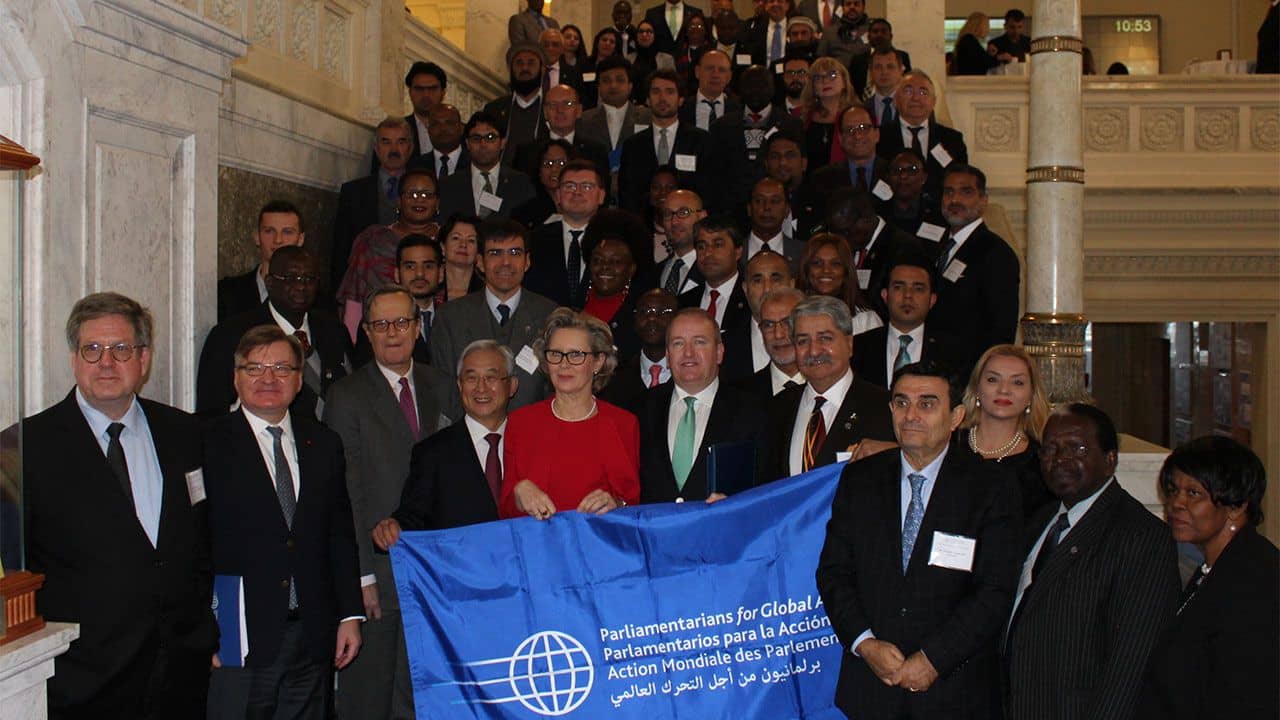Malawi is a state party to the Rome Statute. PGA has worked with Parliamentarians from Malawi to promote the fight against impunity for the most serious crimes, and is currently promoting the domestic implementation of the Rome Statute and the ratification of the Kampala Amendments of 2010.
Rome Statute
Malawi signed the Rome Statute of the International Criminal Court (ICC) on 3 March 1999, and ratified the Statute on 19 September 2002 – making them the 81st State Party.
Kampala Amendments of 2010
Though a delegation representing Malawi attended the 2010 Review Conference and joined the consensus to adopt the Kampala Amendments, Malawi has yet to ratify the Amendments.
Domestic Implementation of the Rome Statute
Malawi has not yet fully implemented the Rome Statute in its domestic legislation. However, Malawi has illustrated its support for the integrity of the ICC. In 2012, President Joyce Banda did not welcome Sudanese President Omar Al-Bashir to Malawi for the African Union Summit. Her actions both isolated Al-Bashir and showed support for the Rome Statute’s integrity.
In light of this situation, parliamentarians from Malawi requested technical assistance from PGA in the adoption of a comprehensive bill on the ICC. On 12 April 2012, PGA delivered a draft bill based on the 2011 Commonwealth Model Law agreed upon by all Commonwealth Ministers of Law – including Malawi. Despite many expressions of interest and enthusiasm about bringing forth the bill to Parliament, the status of the “International Criminal Court Act 2012” could not be explained in detail by Mr. Patrick Kabambe, Principal Secretary at the Ministry of Foreign Affairs. Mr. Kabambe, however, did confirm both that the draft legislation went to the November/December 2012 Parliamentary session, and that Malawi was extremely willing to implement the Rome Statute.
In 2015, Zimbabwe President Robert Mugabe appealed to all African nations to withdraw from the ICC during the 24th African Union Assembly. Malawi’s Minister of Justice and Constitutional Affairs, Samuel Tembenu, responded by explicitly reiterating Malawi’s commitment to the ICC and the Rome Statute.
Agreement on Privileges and Immunities of the Court (APIC)
Malawi acceded to the Agreement on Privileges and Immunities of the Court (APIC) on 7 October 2009, but has yet to ratify it.
Additional Agreements
Malawi signed a Bilateral Immunity Agreement (BIA) by the United States regarding the surrender of persons to the International Criminal Court on 20 September 2003. This executive agreement entered into force on the same date.
Malawi is a member of the African, Caribbean and Pacific Community (ACP). As a signatory of the revised Cotonou Agreement of the ACP and European Union (EU), Malawi has recognized the importance of the ICC as a mechanism for peace and international justice. By way of their signatory status, Malawi has committed to promote the ratification and implementation of the Rome Statute, to seek to take steps towards the ratification and implementation of the Rome Statute, and to combat international crime giving due regard to the Rome Statute. PGA has also worked within the ACP-EU mechanism.
Progress and PGActions
-
April 2012: In light of the participation of Sudanese President Omar Al-Bashir to the African Union Summit hosted by Malawi, Ms. Barbara Lochbihler, MEP, Chair of Subcommittee on Human Rights, and PGA member, sent a letter to President Joyce Banda of Malawi reminding her of Malawi’s obligations under the Rome Statute.
-
June 2012: PGA provided technical assistance on implementing legislation to parliamentarians, as per PGA’s report to COJUR.
-
August 2013: PGA put forth a suggestion to the EU demarches of the second semester 2013 to make Malawi a target country for Rome Statute implementation.
Progress and PGActions
Malawi was reviewed under the Universal Periodic Review in 2010. The second cycle national Report, produced 4-15 May 2015, was prepared by a National Task Force. The third cycle national Report will be tentatively produced in February 2020.
Though the second cycle Report does note many instances of implementation of domestic legislation in line with international commitments – for example, the Gender Equality Act with the Convention on the Elimination of all forms of Discrimination Against Women; it does not make note of the domestic implementation of the Rome Statute.







